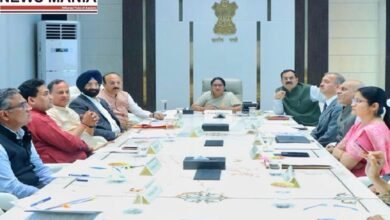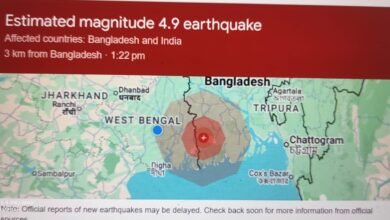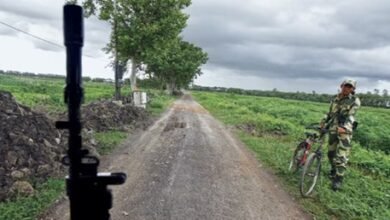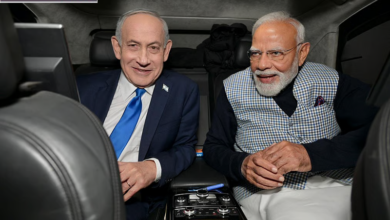‘How K. Kasturirangan, The Former Chairman Of ISRO, Rose To Become The Government Of Modi’s Top Educator
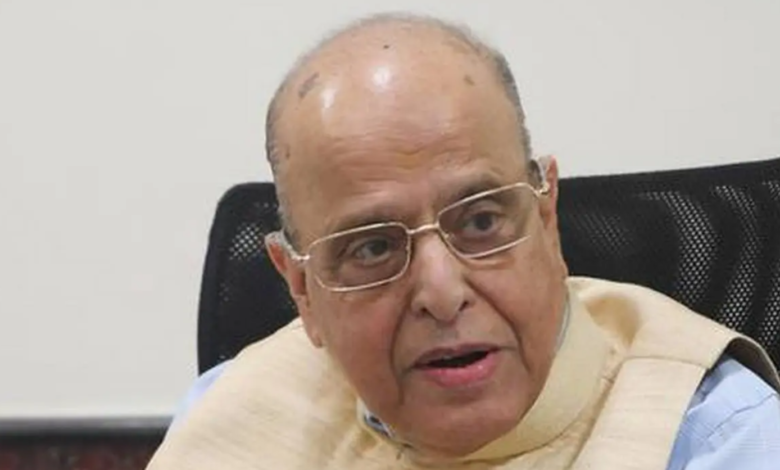
Although he has presided over numerous space missions, K. Kasturirangan claimed that the creation of a new National Education Policy (NEP) for India was the mother of all difficulties he had to cope with in his public life.
He relied heavily on his previous positions as head of the Indian Space Research Organisation (ISRO), a Rajya Sabha MP, and a member of the former Planning Commission when faced with the enormous task of developing a blueprint for educational reforms throughout the nation.
His knowledge was expanded as a result of these three experiences, and he was better able to comprehend the difficulties in establishing an education strategy given the need to secure the correct kind of inputs for national growth.
The strategy was finally made public in July 2020 after three years of discussions with many stakeholders, including teachers, business organizations, scientists, and representatives from villages to district levels.
The Four Year Undergraduate Program (FYUP) at colleges and universities, a greater focus on skill-based learning in schools and colleges, and a blurring of the borders between vocational and textbook-based education are just a few of the ways the NEP 2020 wants to revolutionize the educational system.
When the panel began its work in 2017, according to government sources who worked with the Ministry of Human Resource Development (formerly known as the Education Ministry), Katurirangan was selected due to his academic stature and affiliation with several knowledge commissions.
All the officials ThePrint spoke with agreed that Kasturirangan’s involvement with the panel went above and beyond what was anticipated.
The 82-year-old former space scientist and Padma Vibhushan recipient serves as the Narendra Modi administration’s top education official at the moment. He is currently in charge of the committee drafting the new National Curriculum Framework (NCF), which will ultimately determine what is included in the curricula of all public schools in the nation.
Academic-focused and apolitical
2017 saw Kasturirangan given control of a nine-person committee charged with creating a new education policy. An earlier committee was established in 2015 under the leadership of the former cabinet secretary T.S.R. Subramanian, but its recommendations were not implemented.
According to officials, Kasturirangan did not fall short on any of those counts.
When in a dispute about policy, officials at the Education Ministry claim they no longer need to pore over lengthy paperwork. They consider Kasturirangan to be an encyclopedia of knowledge, and they consult him whenever there is a query regarding any provision of the policy. He has worked well with several prime leaders, including I.K. Gujral, Manmohan Singh, and Narendra Modi, due to his apolitical stance.
Kasturirangan was the director of the National Institute of Advanced Studies while also serving as a Rajya Sabha MP from 2003 to 2009, roughly 35 years after first becoming involved with ISRO and leading it from 1994 to 2003.
He served as a member of the Planning Commission under the previous United Progressive Alliance (UPA) administration from 2009 to 2014. In 2008, he was also in charge of the Karnataka Knowledge Commission.
As a member of the board of governors at the Indian Institute of Science (IISc) in Bengaluru and the Indian Institutes of Technology (IITs) in Roorkee and Madras, he has worked with numerous institutions. Notably, he was chosen to serve as the university’s chancellor in 2012. (JNU).
From a space scientist to a leading educator
Those who have known Kasturirangan for a long time will not be surprised by his transition from leading India’s space program to serving as the government’s top education official.
In addition to his scientific aptitude and expertise, former ISRO scientist Mukund Rao claimed that Kasturirangan’s ability to relate with everyone, including children, philosophers, politicians, and fellow scientists, made his path to education appear like a natural progression.
Rao completed his Ph.D. under Kasturirangan, whom he has regarded for the past 35 years as a friend, philosopher, and mentor.
Rao recalls a terrifying occasion where a fire was discovered soon before a satellite launch.
Kasturirangan is one of the few scientists still engaged in public life who has worked with Dr. Vikram Sarabhai, who is regarded as the founder of the Indian space program and is connected to many significant moments with ISRO.
He oversaw the activities involved in the creation of new generation spacecraft, including the Indian National Satellite (INSAT-2), Indian Remote Sensing Satellites (IRS-1A & 1B), as well as scientific satellites, during his time with ISRO.
Additionally, he oversaw the development of India’s first two experimental earth observation satellites, BHASKARA-I & II, and was later in charge of IRS-1A, the country’s first operational remote sensing satellite.
Kasturirangan is a multifaceted personality, according to another former ISRO scientist Sridhara Murthi, who served as the scientific secretary while Kasturirangan was chairman and was crucial in starting the Chandrayaan lunar exploration program as well as in facilitating discussions with the scientific community and political leadership.
According to accounts, Kasturirangan’s 1999 speech was the motivation for the political establishment to support an Indian lunar program. In 2008, the first Chandrayaan mission visited the moon.
News Mania Desk



